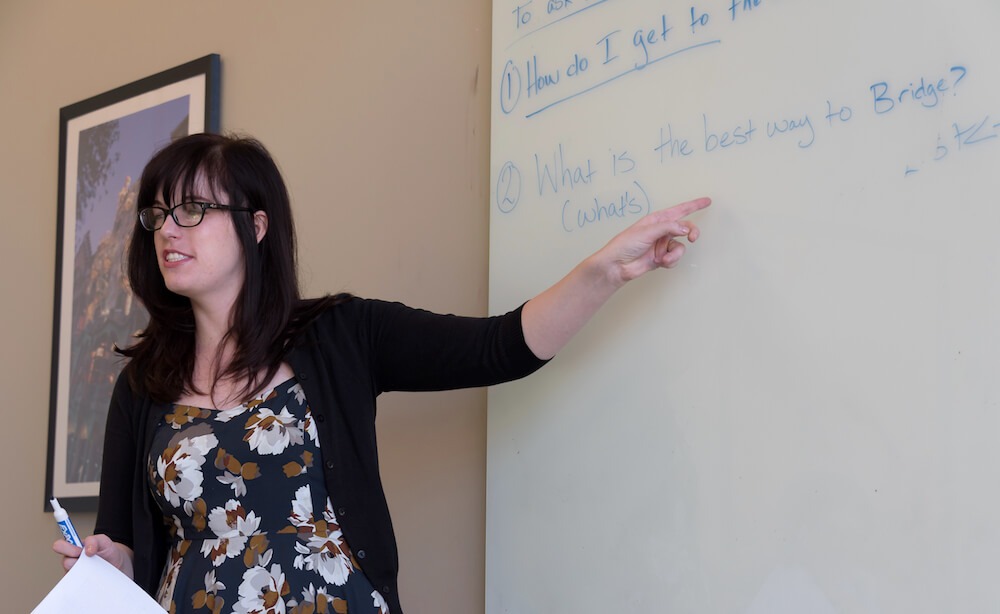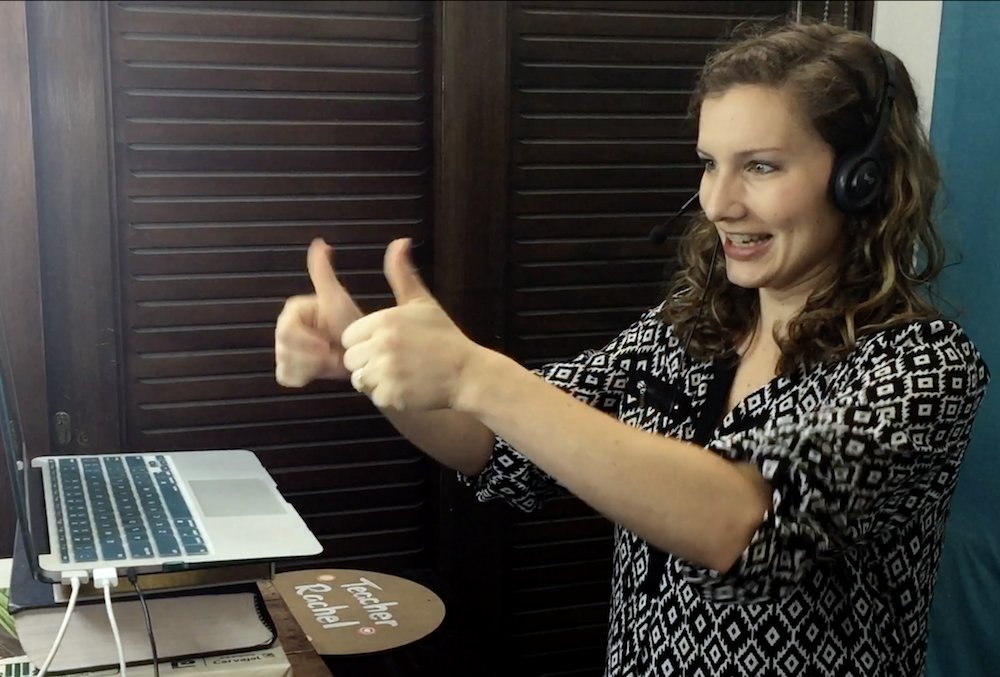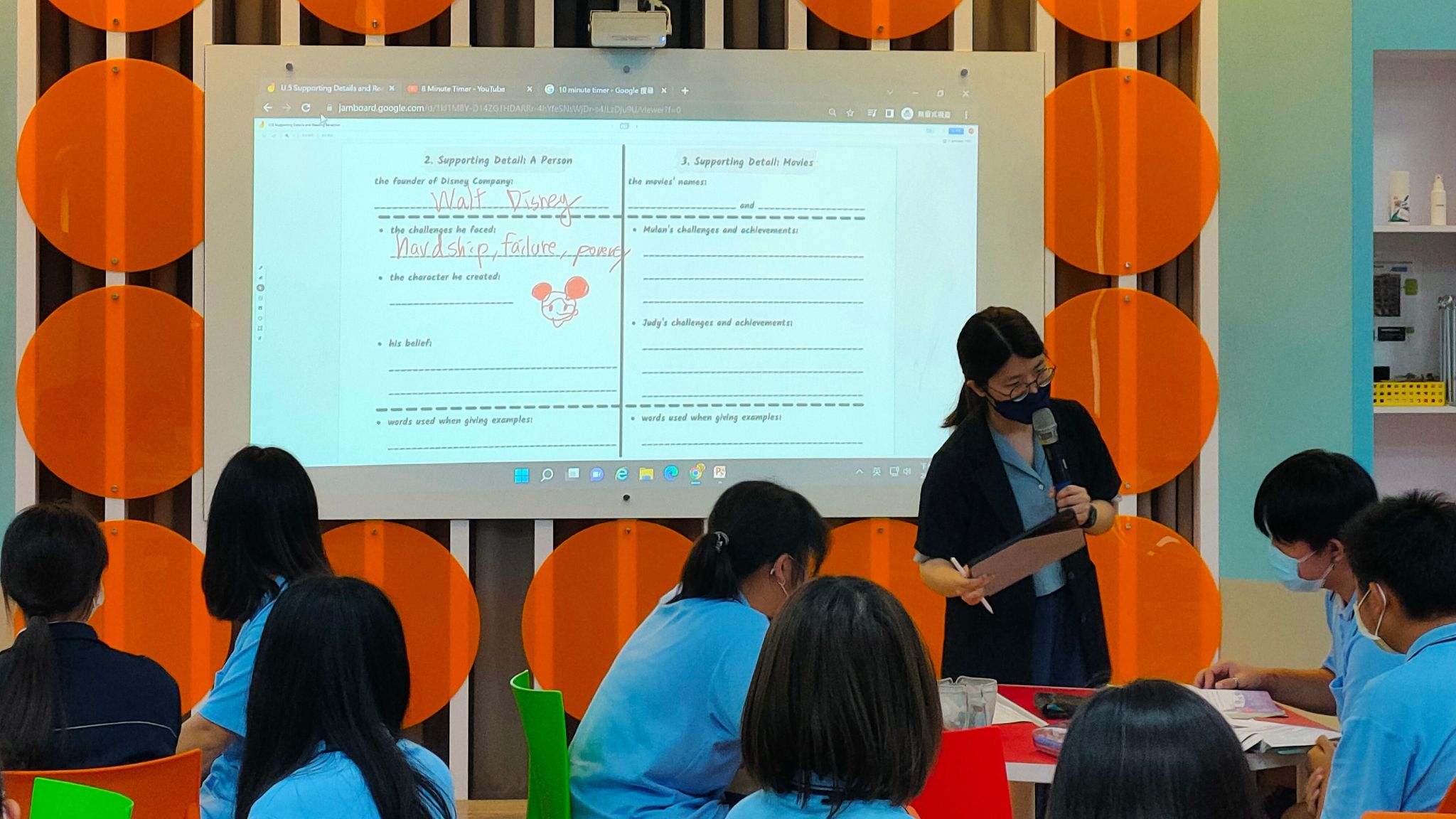“Do you understand?” “Does that make sense?” “Do you have it?” It doesn’t matter how a teacher might ask, these types of questions are not the most effective attempts at checking comprehension with ESL students, who might simply say “yes” whether they understand or not. Using concept checking questions (CCQs), on the other hand, is a more effective way to test students’ comprehension of a subject. Let’s take a deep dive into using CCQs in the ESL classroom.
Looking for best practices in giving effective feedback? Read about mastering the art of feedback for ESL students.
What is a CCQ?
You may be asking yourself, “How do CCQs differ from simply asking students if they understand?” To boil it down, CCQs in ESL are targeted questions or prompts that elicit a response that exhibits the student’s understanding. The questions are presented after a lesson to assess comprehension.
For example, after a lesson on the simple past tense, instead of asking the class, “Do you understand how to form the past tense?” the teacher might wrap up the lesson by asking students to come to the board and write one thing they did before coming to class today. Some examples could be “I ate breakfast,” “I studied,” or “I did my homework.” Online teachers can have students do this same activity using a chatbox.

When do teachers need to use CCQs?
Questions like these allow teachers and students to confirm the lesson concept is understood. CCQs for teaching ESL can be used any time a teacher wants to assess students’ learning. They’re a great tool for when you teach ESL vocabulary or grammar. These questions might check comprehension of lexical items, phrases, and grammatical structure, for example.
Concept checking questions in the ESL classroom should be reasonably simple questions suitable for the student’s age and English-speaking level. These questions are designed to highlight the essence of the day’s target language and verbally check for understanding of grammar, vocabulary, communicative functions, and instructions.
What is the primary purpose behind using concept checking questions in the ESL classroom?
In a word, understanding. In the physical or online classroom, the main purpose of a CCQ in TEFL/TESOL is to determine if the student comprehends what you’ve taught without explicitly asking, “Do you understand now?” Although the answer to this question is what the teacher wants to know, the broad phrasing does not target a specific skill or concept and may be misinterpreted. Additionally, this question wouldn’t provide any insight into the student’s comprehension level and is likely to be answered with only a yes or no.
The ability to ask effective questions that apply to the lesson is key to implementing a smooth CCQ experience with your students. Good CCQs can also increase natural conversation as the student expands on their answers and ideas.
What can a TEFL CCQ check for?
First, by using CCQs, the teacher evaluates what their students know and, in turn, the students get to participate in the learning process of discovering and understanding the new language. Using concept checking questions in the ESL classroom allows for informal evaluation of students throughout their learning experience. Knowledge gained through informal evaluation creates opportunities for teachers to tailor curriculum, games, or other activities to further improve a student’s mastery of the concepts.
Second, through CCQs, learners articulate their English knowledge, and teachers clarify and add to that knowledge. This is beneficial for both teacher and student, as the teacher can also determine what changes may need to be made to future CCQs. Like all teaching tools, concept checking questions in the ESL classroom will need to be adjusted for each class based on age, level, and learning goals for the group.

How to make concept checking questions: The Golden Rules for using CCQs when teaching English
Next, you may be wondering how to create your own concept checking questions. To make the process simple, we’ve compiled a list of five “Golden Rules.” Referencing these rules often, until comfortable, will help you, as the teacher, create a learning atmosphere that is effective and efficient.
Check out the Golden Rules at a glance in this infographic!
1. Plan CCQs in advance.
Preparation is a major contributor to success in all areas of life. This is especially true when preparing to teach English abroad or online. As an ESL teacher, it is very beneficial to look over the lesson before starting class and jot down a few CCQs. You can also prepare your CCQs while creating your ESL lesson plan. This will encourage an organized and fun class while ensuring the student gets the most out of their lesson and time.
2. Ask questions that are simple.
By “simple,” we don’t mean asking third-grade students kindergarten-level questions, even though they would love that! Instead, ask questions that are considered simple for their specific English language learner level.
The CCQs should be drafted with the lesson level in mind as well as the students’ levels. Otherwise, much time may be wasted on explaining small details and meanings that are not applicable or appropriate to the level being taught. Tailor the CCQs as precisely as possible to the lesson and students’ needs.

3. Use several styles of CCQs.
Another great rule for making CCQs is to use several types of questions. You may ask yes/no questions, either/or questions, and open-ended wh- questions to check the various aspects of students’ understanding of the target concept. Each type of question elicits a different kind of response. Some responses will have short or yes/no answers, while other questions will create dialogue and extended responses from the student.
In addition to varying the styles of your questions, be sure to direct CCQs to specific students, not always to the whole class, the same students, or the best students. It’s important that all students are being assessed.
4. Consider vocabulary usage.
Unfamiliar vocabulary in CCQs can cause confusion. Be sure you don’t add unfamiliar vocabulary or new language to CCQs; it just muddies the attempt to gauge understanding of the target concepts. Reflect on how you may have felt learning the language. Even if English was your first language, it might’ve been difficult to grasp many new concepts if the teacher used unfamiliar or difficult vocabulary words.
Many times, our students may be feeling the same way. Using language they’ve already learned or been introduced to will help them follow along more easily and feel confident that they’re making progress in each lesson.
5. Use media and mix it up.

Here’s the fun part! Students love visual examples and gestures that keep them interested in the lesson. You can include realia, pictures, miming, synonyms, antonyms, the whiteboard, and more when using CCQs. Incorporating different forms of media and English tenses will make content comprehension checking more fun and interactive.
These materials may also distract the student from realizing they are being “pop quizzed,” keeping them engaged and confident.
Looking for fun classroom activities for adult ESL students? Gain new teaching strategies and game ideas in the 10-hour Bridge Micro-credential Games and Activities for the Online Classroom (Adults).
What are some examples of concept checking questions?
Future present progressive vs. simple future
Let’s imagine that you taught your students a lesson on the difference between two common ways to express the future: present progressive tense (“I’m seeing a movie tonight”) vs. simple future (“I will be there”). A good CCQ for English students at the end of class could be to ask, “What are your plans for the rest of the day?” Their answers (I will study/I’m going to play soccer) will indicate if they understood the lesson! These questions are simple, yet precise and provide assurance the teacher can move forward.
Nouns and pronouns
Now let’s imagine you taught your students a lesson on the difference between nouns (such as “truck”) and pronouns (such as “it” or “that”). A good CCQ for the end of class might be to ask, “What pronouns can you use to replace the nouns children, store, and car?” An answer, such as “I can use they, there, and it,” will also indicate the student understood the lesson and how to apply it to real life. These questions can be a great way to accurately gauge student understanding. Try a few out!
A clear grasp of content-checking questions, or CCQs, (targeted questions presented after a lesson to measure understanding) will set the teacher up for success while simultaneously impacting students’ successes. Therefore, when properly using the “golden rules” to create effective CCQs, teachers and students can proceed through their lessons with confidence in what was taught and learned.







